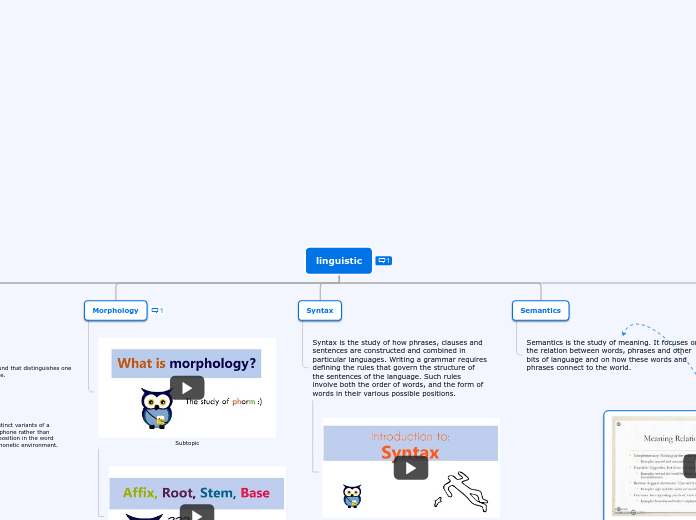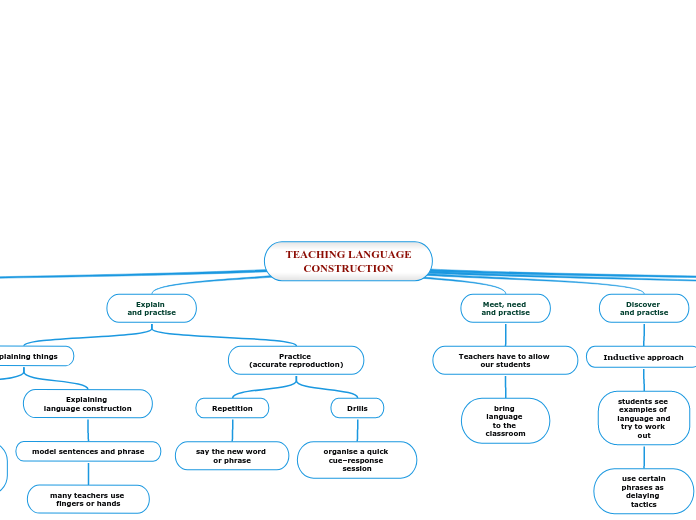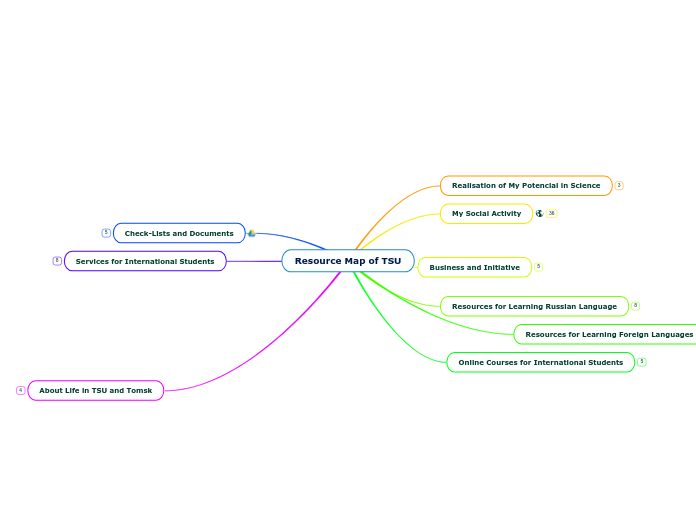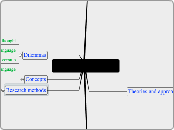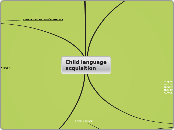-University of california (2017) what is linguistics?https://linguistics.ucsc.edu/about/what-is-linguistics.html
-SIL(?)What is Linguistics? www.sil.org
-https://www.youtube.com/watch?v=8oErYqsZ-MM&ab_channel=MaryCaitlinWight
-https://www.youtube.com/channel/UCXB858aJca2eaztdY5QW1QQ
Topic flotante
linguistic
Linguistics is the study of language - how it is put together and how it functions. how is such a knowledge system structured, how is it acquired, how is it used in the production and comprehension of messages, how does it change over time? Linguists consequently are concerned with a number of particular questions about the nature of language. What properties do all human languages have in common? How do languages differ, and to what extent are the differences systematic, i.e. can we find patterns in the differences? How do children acquire such complete knowledge of a language in such a short time? What are the ways in which languages can change over time, and are there limitations to how languages change? What is the nature of the cognitive processes that come into play when we produce and understand language?
Pragmatics
Pragmatics is similar to semantics , but it involves the study of how speakers of a language use the language to communicate and accomplish what they want.
Semantics
Semantics is the study of meaning. It focuses on the relation between words, phrases and other bits of language and on how these words and phrases connect to the world.
Syntax
Syntax is the study of how phrases, clauses and sentences are constructed and combined in particular languages. Writing a grammar requires defining the rules that govern the structure of the sentences of the language. Such rules involve both the order of words, and the form of words in their various possible positions.
Morphology
Morphology looks at how individual words are formed from smaller chunks of meaningful units called morphemes. For example, the English word 'untied' is really made up of three parts, one refering to the process of reversing an action (un-), one indicating the action of twisting stringlike things together so they stay (tie), and the last indicating that the action happened in the past (-d).
Subtopic
Phonology
makes use of the phonetics in order to see how sounds or signs are arranged in a system for each language. In phonology, it matters whether sounds are contrastive or not, that is, whether substituting one sound for another gives a different, or "contrastive," meaning.
allophones
Allophone, one of the phonetically distinct variants of a phoneme. The occurrence of one allophone rather than another is usually determined by its position in the word (initial, final, medial, etc.) or by its phonetic environment.
phonemes
A phoneme is the smallest unit of sound that distinguishes one word from another word in a language.
Phonetics
phonety is the study of the sounds of speech. It includes understanding how sounds are made using the mouth, nose, teeth and tongue, and also understanding how the ear hears those sounds and can tell them apart.
